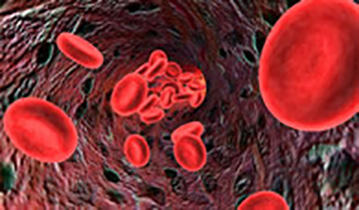
A new study led by LSTM will investigate whether long-term weekly iron and folic acid supplementation can reduce anaemia without increasing the risk of contracting malaria. The information provided by the study, based in Burkina Faso and running until 2014, will strengthen adolescent health services and develop effective preventative programmes for anaemia control in young women.
Young women who conceive during or shortly after adolescence may enter pregnancy with deficient iron stores due to their development and the onset of menstruation. This can be offset with iron supplementation but there is some evidence that this can increase the risk of contracting malaria. Many young women tend not to present at antenatal clinics until mid-pregnancy and are therefore unlikely to be protected from malaria at the most susceptible period in early pregnancy.
Professor Bernard Brabin, Head of LSTM’s Child and Reproductive Health department, has secured a £0.5 million grant from the US National Institutes of Health, through support from the Bill & Melinda Gates Foundation, to test the hypothesis that iron supplementation in young women prior to conception and during early pregnancy results in reduced iron deficiency and anaemia in pregnancy without increasing malaria risk. The study is being conducted in partnership with the Centre Muraz in Burkina Faso and the Institute of Tropical Medicine in Antwerp.
Professor Brabin explained: “As young women who are pregnant for the first time are particularly susceptible to the risks of malaria in pregnancy, it is essential to assess the safety of long term weekly supplementation, an approach now recommended by the World Health Organization. Some fifty million pregnant women are at risk of malaria every year but there are only four published studies of the effects of iron treatments during pregnancy on the prevalence of both malaria and anaemia and none on malaria risks in early pregnancy.”
The study will look at the differences in malaria parasite prevalence, the incidence of clinical malaria and the prevalence of iron deficiency and anaemia between two randomised groups, one receiving iron supplementation and the other a placebo. Qualitative studies will assess adherence to weekly iron supplementation. The subjects will be followed from enrolment through conception to their first antenatal visit and delivery. The trial will be conducted according to the principles of good clinical practice and wil be reviewed by Ethical Committees in the three partner countries.
Professor Brabin continued: “Once we have a definitive answer to whether supplementation is safe, we will be able to inform the way adolescent health services are promoted, with the aim to develop more effective preventative programmes for anaemia control in young women.”
-ends-
For further information, please contact:
Alan Hughes, Communications Manager
Office: +44 (0)151 705 3308
Mobile: +44 (0)7759 243969
Notes to Editors
The Liverpool School of Tropical Medicine (LSTM) has been engaged in the fight against infectious, debilitating and disabling diseases for more than a hundred years and continues that tradition today with a research portfolio in excess of £130 million and a teaching programme attracting students from over 70 countries.